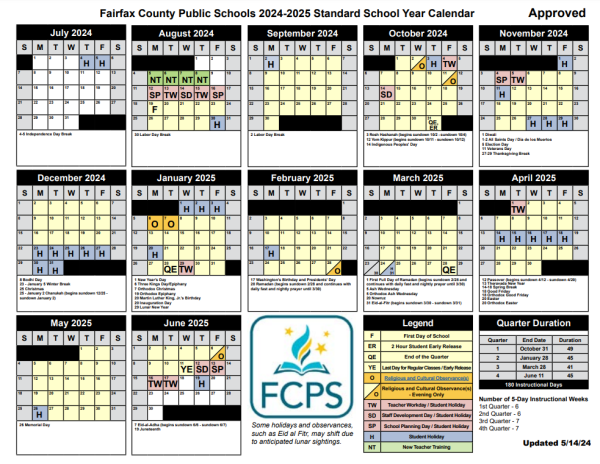THE SEESAW OF PARENTS AND EDUCATION
Photo courtesy of Creative Commons
Books on a book shelf
During the Virginia governor’s debate on September 29, Democratic candidate and former governor Terry McAuliffe declared, “I don’t think parents should be telling teachers what they should teach.” Many believe his remark became the nail in the Democrat’s campaign coffin.
The impact of this single quote took Fairfax County Public Schools (FCPS) and Loudoun County Public Schools (LCPS) by storm. Multiple school board meetings have been shut down recently due to parents’ outrage towards new school policies.
In bluevirginia.us article, reporter Holly Hazard recalls events at the October FCPS school board meeting as disturbing. Hazard stated, “They yelled and ranted at the school board, calling them Communists, terrorist sympathizers, really ranting nonsense….”
Similar occurrences took place in Loudoun County Public School (LCPS) board meetings, after former state Senator Richard Black argued against schools teaching critical race theory, claiming LCPS was “teaching children to hate others due to their skin color.” The senator also made what some interpreted as transphobic comments towards teachers respecting their students’ pronouns.
Many parents have been very vocal about their views regarding their children’s education. Because of this, Terry McAuliffe’s opinion regarding parents’ choice was met with significant backlash, which ultimately led to his loss in the election.
With all the chaos surrounding this debate over parents and education, people have forgotten about balance. Parents should have neither too little nor absolute control over their child’s curriculum. Both of the extreme sides of the spectrum will result in conflicts between parents and the education systems.
FCPS already offers multiple rights to parents, such as in their English syllabuses, which assure parents that a committee consisting of not only teachers, but also parents and administrators approves the books. If, however, a parent has any concerns regarding a book, they are asked to contact their child’s teacher directly and discuss finding an alternative.
When asked about these alternatives, Bridgid Duffy, English Teacher stated, “Yes, most definitely! English classes have always had alternative options for students. I’ve taught for 31 years and each school I’ve been at has a variety of texts that can be swapped for a text a parent opts out of for his/her child.” She goes on to mention that, “Often times, after a parent reads the text or meets with the teacher and discovers the purpose of the lesson, the parent may no longer object; however, if an objection continues, then we simply provide another title choice.”’
The main controversy surrounds books, specifically ones that center around sex, race and LGBTQ representation. According to a WUSA9 article, FCPS recently restored two temporarily “banned” books back to school library shelves. Parents claimed that “Lawn Boy,” by Johnathan Evison, and “Gender Queer – A Memoir,” by Maia Kobabe, were depicting pornography and pedophilia. The books were then inspected by FCPS for about two months before being added back to shelves.
This inspection helped prove that the books did not contain pedophilia but rather LGBTQ representation, and while there were graphic elements, both were deemed to have redeeming qualities. Assistant Superintendent Noel Kilmenko remarked, “Both books have value beyond their pages for students who may struggle to find relatable stories”.
Still, there may be parental concerns in other classes or school activities, which FCPS also has additional policies for. According to the FCPS website, parents have the right to fill out opt- out forms for their children regarding their child’s participation in certain surveys, instructional materials used for educational curriculum, and physical examination not required by state law. In addition, parents can opt their children out of any emotional, social, career and academic counseling.
With all these options and alternatives in place, a question arises: What are the limits for parental objection? Many topics taught in education systems are vastly needed, especially for today’s young generation. Some topics cannot be avoided in certain subjects, such as the study of evolution in science or religious references in history lessons. Schools should also remain steadfast in offering lessons on social justice, which inform students about racial profiling, civil rights, activism, and gender equality for trans and non-binary students in schools.
There are lessons that can not be avoided forever. The desire to shelter children from certain harsh topics is understandable, but how much exactly can we make them avoid? Keeping reasonable involvement for parents in student curriculums while also allowing teachers to educate their students, will help settle some conflict and concerns in the education system. It’s all about striking a healthy balance.






